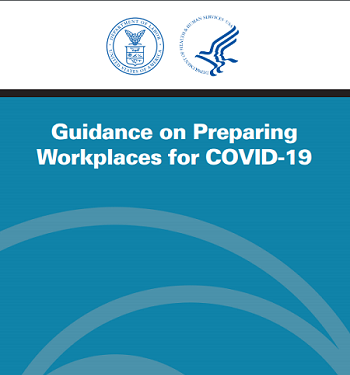While states have started to relax private business restrictions initially put in place due to Coronavirus, most state and federal employees continue to work remotely. This isn’t going to continue indefinitely, however. Many federal agencies have already issued guidance on how to bring employees back to the office, and employees who have been on paid leave because they cannot work remotely will be among the first to return.

Of course, some public employees have been in the office throughout this crisis – those workers were considered essential to the functioning of the government or the response to COVID-19. At some point, however, even employees working remotely who are not essential to meeting immediate, life-or-death needs will need to return to the office. Decisions on when and how to bring these employees back to the office are being handled with great care at the agency level, but unfortunately when and how to “open the economy” has become a political football for both parties.
With more than nine million local, state and federal employees (excluding educators) it’s only a matter of time before at least a handful of public offices across the country experience a COVID-19 outbreak. Any COVID-19 outbreaks at public agency offices are likely to receive media and legislative oversight attention, whether they happen at the local, state or federal level. And while the Human Resources department may handle many individual employee complaints of improper COVID-related decisions at most agencies, it ceases to become an individual issue once the virus has begun spreading and dozens or hundreds of employees are at risk of being infected.
A COVID-19 outbreak doesn’t mean that anyone broke the operating guidelines; the virus can and does sometimes spread even if people take appropriate and recommended precautions. But when a COVID-19 outbreak does strike a public office, employees who felt they were subjected to a life-threatening illness because of bad managerial decisions are obviously going to submit complaints – possibly to an IG hotline.
All of this means that IG offices are likely to become involved if an agency experiences a pattern of COVID-19 related complaints or an agency experiences an outbreak. Any COVID-19 outbreak will likely be contained well before any IG reports are issued, but that doesn’t detract from the value of an objective opinion on whether the outbreak was the result of bad decisions.
Did managers have reason to believe someone might be sick and fail to send them home? Did they look the other way while other employees broke social distancing guidelines? Was too much pressure put on employees to be in the office whenever they could? Was there improper pressure put on agency staff by elected officials or political appointees?
Having the answers to these questions from an objective source is important. Employees will value knowing they are being protected. Other agencies may also learn lessons on how to properly balance the need for an office presence and the need to keep employees out of harm’s way. Because of this, IGs will likely have an important role in any major outbreaks among public employees.
To learn how CMTS can help your investigative agency resolve complaints more efficiently, call us at 919-747-3812 or email us at Team_CMTS@securecasemanagement.com.
